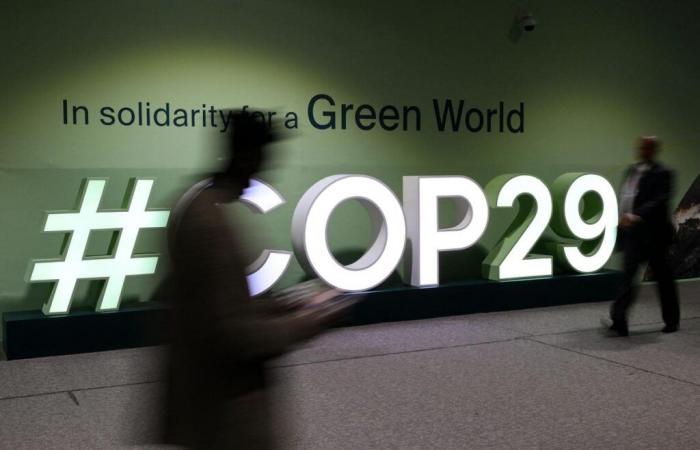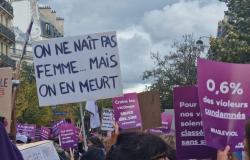“We see glimmers of hope,” summarized German negotiator Jennifer Morgan. “But glimmers of hope are not enough, because there are also poison pills.” An AFP journalist observed on Thursday evening numerous comings and goings of ministers and diplomats between the offices of the Brazilian, European, American, Chinese delegations… and the Azerbaijani presidency of the summit.
The central question in the final hours of COP29, at the “Olympic stadium” in Baku, is to determine how much money developed countries, in the name of their historic responsibility for climate change, will agree to transfer to developing countries, for help confront a more destructive climate and invest in low-carbon energies.
“We are only asking for 1% of global GDP. Is this too much to ask to save lives? » asks Juan Carlos Monterrey Gomez, Panama negotiator. Since the summit began on November 11, storms have killed people from the Philippines to Honduras, Spain is licking its wounds after deadly floods, Ecuador has declared a national emergency because of drought and fires…
“At least” 500 billion
The unprecedented background of this 29th COP is a year 2024 which will probably be the hottest ever measured. And, nine years after the Paris agreement, humanity will still burn more oil, gas and coal than last year.
A draft agreement published Thursday morning displeased everyone because, instead of numbers, there were “X's”, and because it did not decide between two very opposing visions. The Azerbaijani presidency of the summit undertook to produce a new text on Friday, this time with figures. But how much? “At least” $500 billion a year from developed countries by 2030, demands the largest alliance of developing countries. Compare to the 116 billion in climate finance provided in 2022.
The Europeans, the world's leading contributors, repeat that they want to “continue to lead the way”: a carefully chosen term, coming directly from the Paris agreement, as a sign of goodwill. But budgetary tightening limits their room for maneuver. The Americans said they were “deeply concerned” about the latest text. European Commissioner Wopke Hoekstra denounced “unacceptable” work.
“Could I please ask you to show some leadership? » he told the president of COP29, Minister Mukhtar Babaev, a former executive of the Azerbaijani oil company. Americans and Europeans have not yet revealed how much they are willing to pay.
China refuses any obligation
“They are going around in circles in their geopolitical games,” lamented Colombian Minister Susan Muhamad. Developed countries are in fact negotiating in parallel more “ambition” to reduce greenhouse gas emissions, but are opposed to oil-producing countries like Saudi Arabia. The Arab group explicitly warned that it would not accept any text targeting “fossil fuels”.
Which is a mess a year after COP28 in Dubai, which called for launching the transition away from fossil fuels. At press conferences, countries make their voices heard. But behind the scenes, Chinese, Westerners, island states… They all still talk to each other. Irish Minister Eamon Ryan confides that “there is space for an agreement”.
China, key to finding the balance between the West and the South, called on “all parties to meet halfway”. Beijing, however, has drawn a red line: it does not want any financial obligations. There is no question of renegotiating the 1992 UN rule which stipulates that responsibility for climate finance lies with developed countries.






